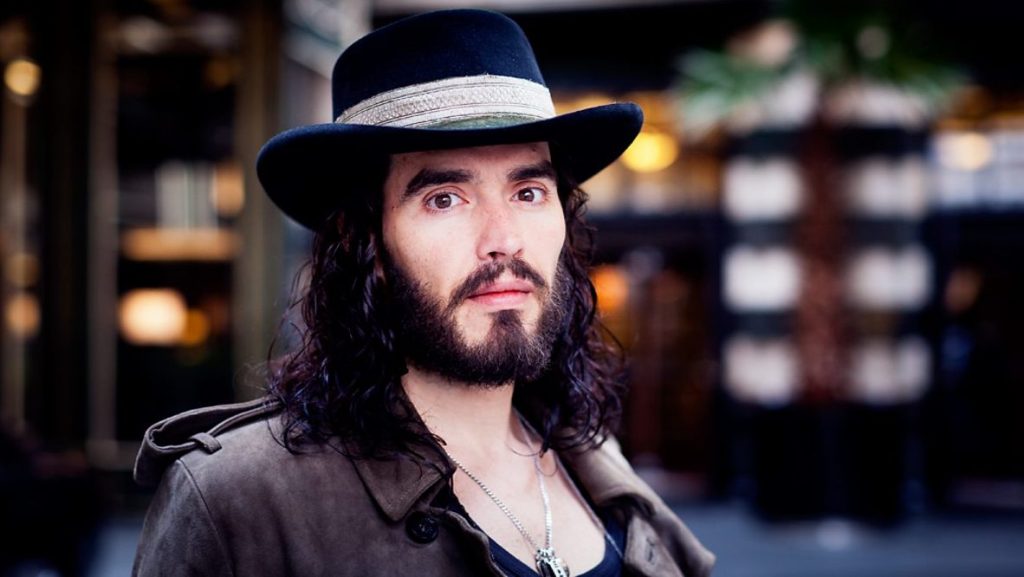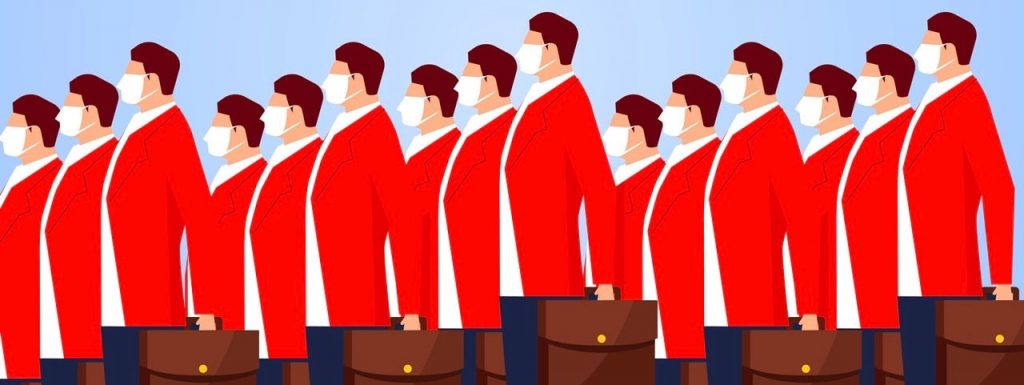Ask the right question and let it percolate, and, when you least expect it, you gain insight and understanding. Ask the wrong question and seek an answer, and you stay stuck and even regress.
Leave it to a British comedian to hit the nail on the head, and then miss it altogether. In an op-ed entitled, “Brexit: What Were We Thinking?” actor and comedian Russell Brand lays bare the zeitgeist of our time:
“Perhaps even before the virus, before Brexit, we had all been quarantined in our own naked individualism — an isolation far more toxic. There we were, incarcerated and alone inside the penitentiary of our temporal identities with no faith or care for anything other than the fleeting fulfillment of our wayward wants.”

A paragraph like that gives you pause, which is probably the best thing a writer can do. But then Brand slides back into the tar pit of national identification:
“This naked individualism is the divide that British people have to reach across for there ever to be any real sense of unity among us.”
Frankly my Anglo-Saxon friend, nobody gives a penny-farthing about British unity, not even, I daresay, even in Britain anymore.
Besides, you can’t both reach for Shakespeare and reside with Boris.
You’re right about far more than that little isle, since the choice you put before us applies to this whole imperiled water world afloat in space: “Ultimately, it is the island of self that we must either leave or remain trapped within.”
You ask, “How, then, are we to regard the ideals of centralization and federalism when the world has been altered forever by the coronavirus — a truly global force, somehow both arcane and futuristic, universal and microbial?”
A more accurate question, I propose, is this: Dispensing with ideals, which inevitably take us away from what is, can we simply face the twin realities of an interdependent global society and increasing human fragmentation?
Yes, “this pandemic reveals that we can no longer live in centralized systems that seek only to protect hierarchies and serve those at their summits, whether they happen to be grotesquely populist or liberal-technocratic in nature.”
But methinks a false choice is hidden between the blurred lines of “hierarchies that serve only those at their summits,” “liberal-technocratic” Brussels, and Trumpian populist con-jobs.
If there’s one truism that the digital era has overthrown, it’s Napoleon’s maxim that “geography is destiny.” Even so, few seem to be able to think beyond the confines of geography, be it the geography of a shrinking island, or nation with a yet-to-be-plundered Siberian tract covering more time zones than eastern America and Western Europe combined, including the Atlantic ocean.
No, psychology is destiny now, specifically the liminal demarcation between regressing tribalistic humans and a new species of human being, which dare not utter its name much lest one raise his or her head above the rotting boards, and receive the hammer that pounds the protruding nail down.
You Brits may not generally “do” revolutions, but we Yanks do. After all, the birth of this nation was defined by a revolution to remove the boot of your empire from our necks.
But we have turned on each other now, in a revolution without a cause. Hell, even without an enemy. The Repubs may project their hate onto Dems more than their forebears hated the redcoats, but it’s all just sound and fury, signifying nothing.

It’s like waging war on Covid. Forever war everywhere doesn’t mean anything, just a terrestrial tragedy.
Placing this pandemic is past pandemic contexts is, like the “war on Covid,” a joke without a laugh. For these are truly unprecedented times, and wars and nations are equally irrelevant to meeting the challenges humankind faces.
Sure, there will still be nations, just as there were still cities after the nation-state replaced the city-state as the organizing principle. Then what is the organizing principle? That’s obvious, but the fear of centralization, hierarchies, technocracies and Mussolini-like throwbacks driving us into provincialism and particularism, trapped within shrinking islands of the self.
So where do we turn? Science cannot save us. The depraved indifference of the Trump Administration during the pandemic is not simply because they failed to “follow the science,” or because they failed to lead with science. It’s because the application of science is only as good as the wisdom of those who employ it.
Seventy-five years after the atomic bombs were dropped on Hiroshima and Nagasaki (the result of the most intensive and comprehensive scientific project ever), we should know better than to make science a first principle.
The irony is that the vast majority of people are scared selfish and small by the scale of the human crisis, when it isn’t actually a crisis of scale at all.
All over the world it is the same challenge: “Ultimately, it is the island of self that we must either leave or remain trapped within.”
Martin LeFevre
Link:

